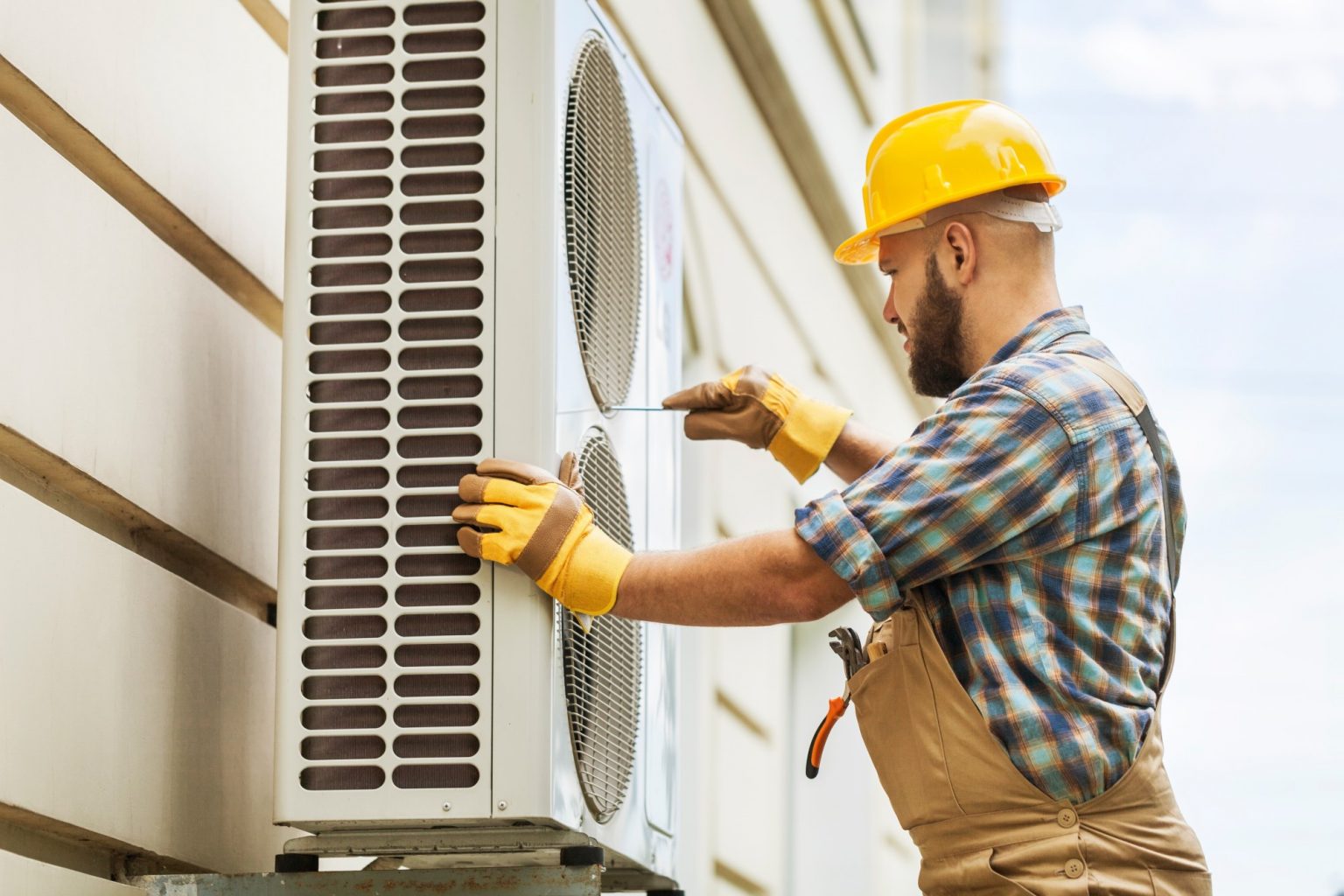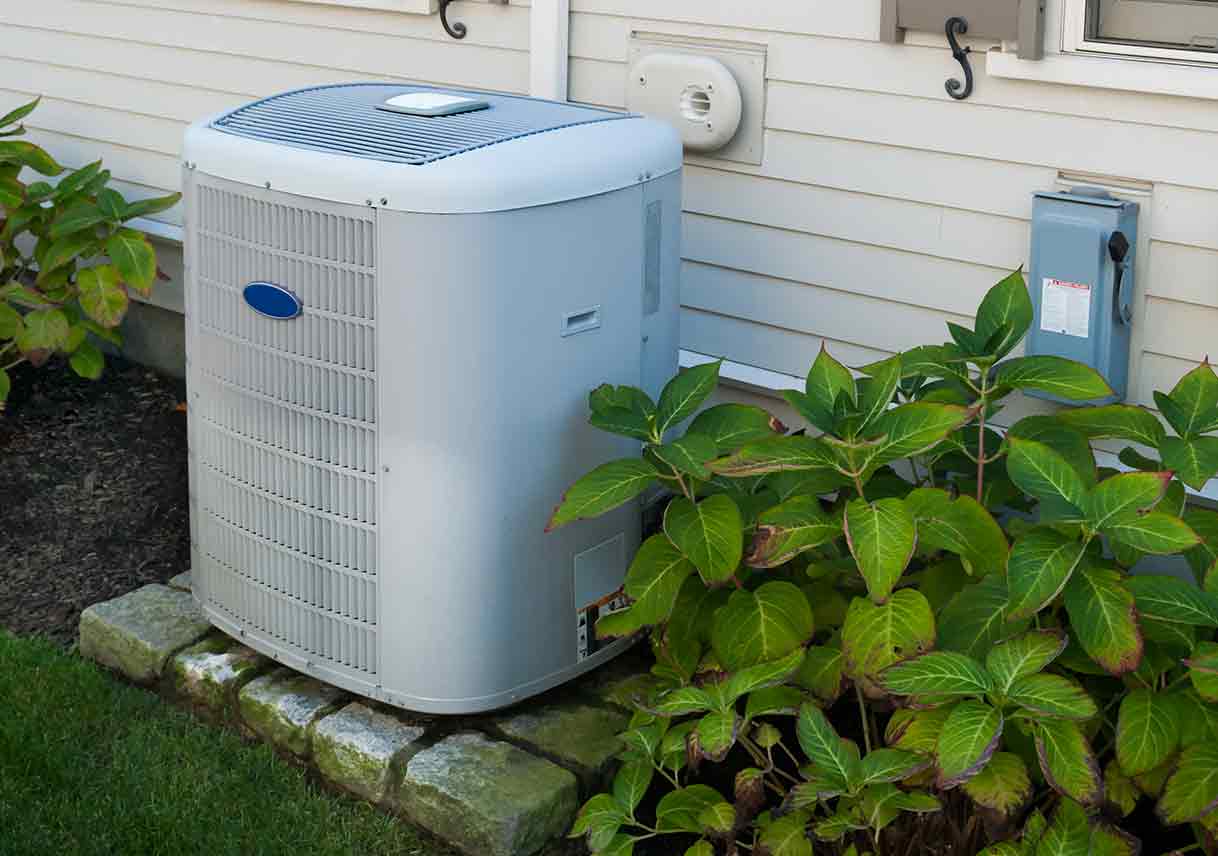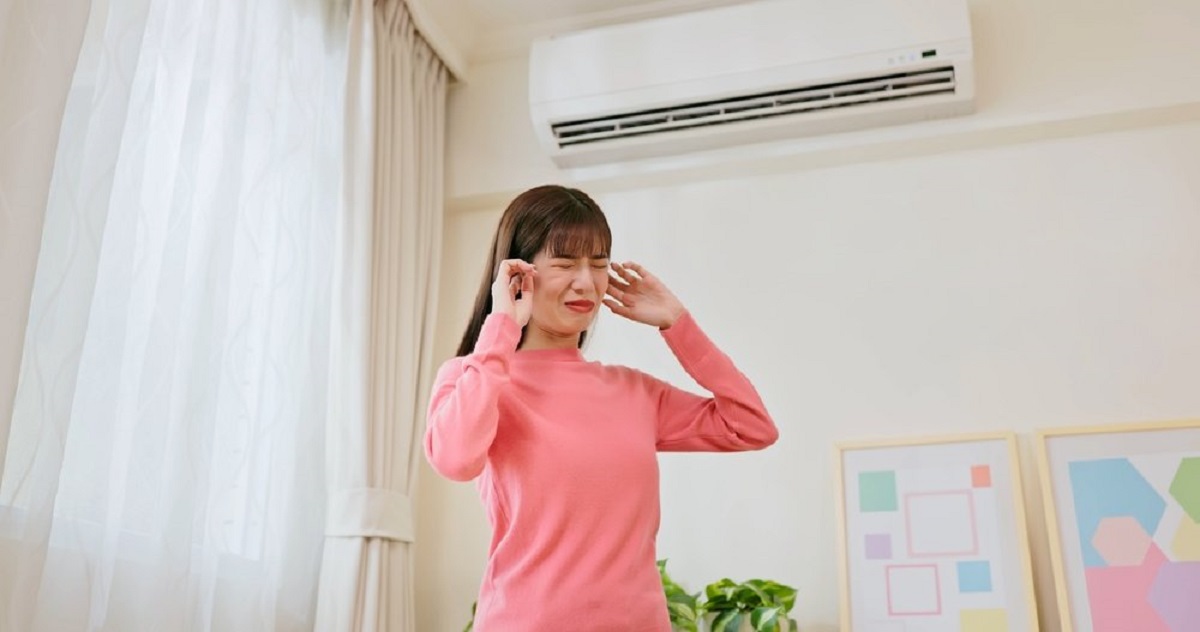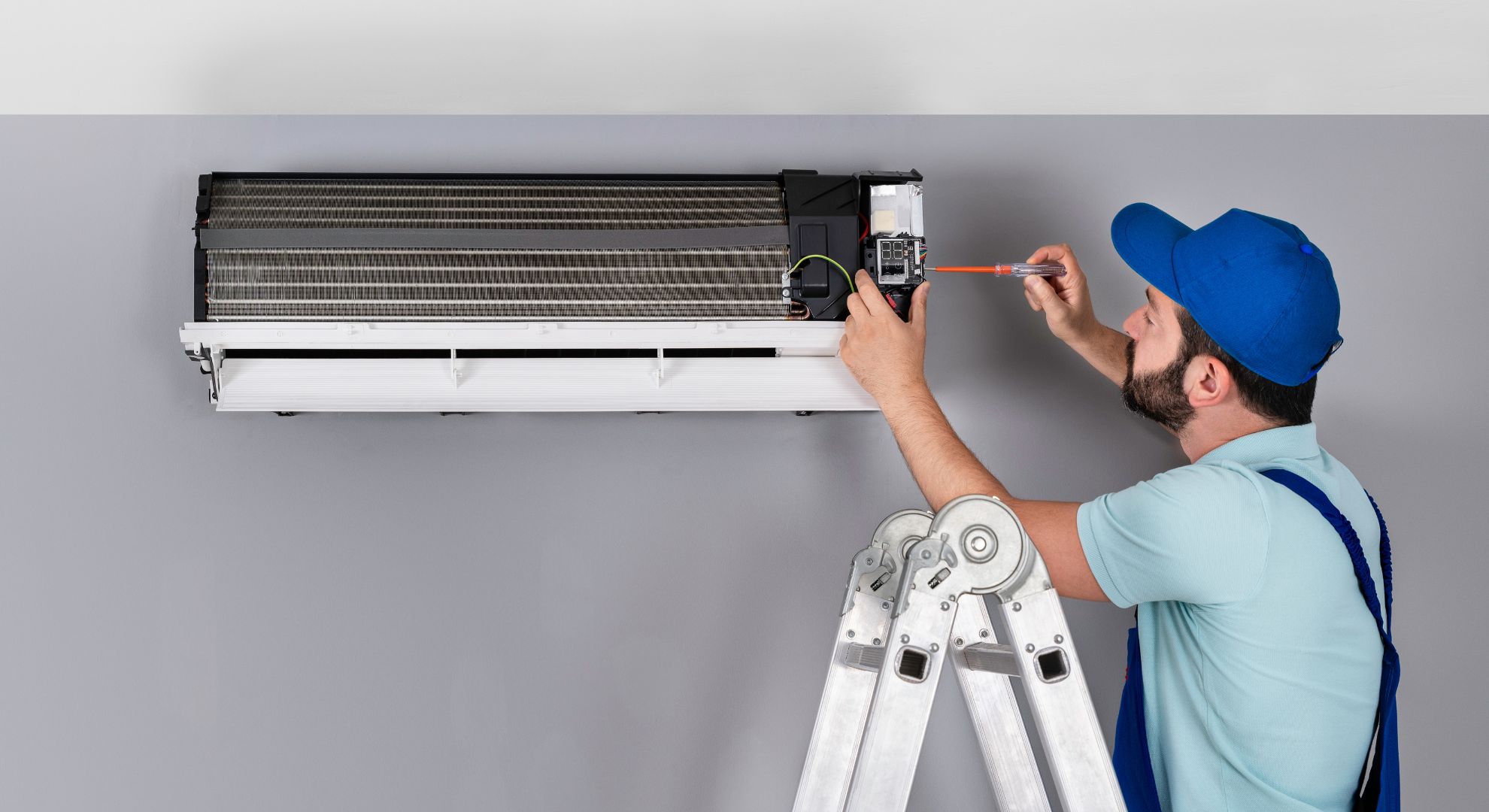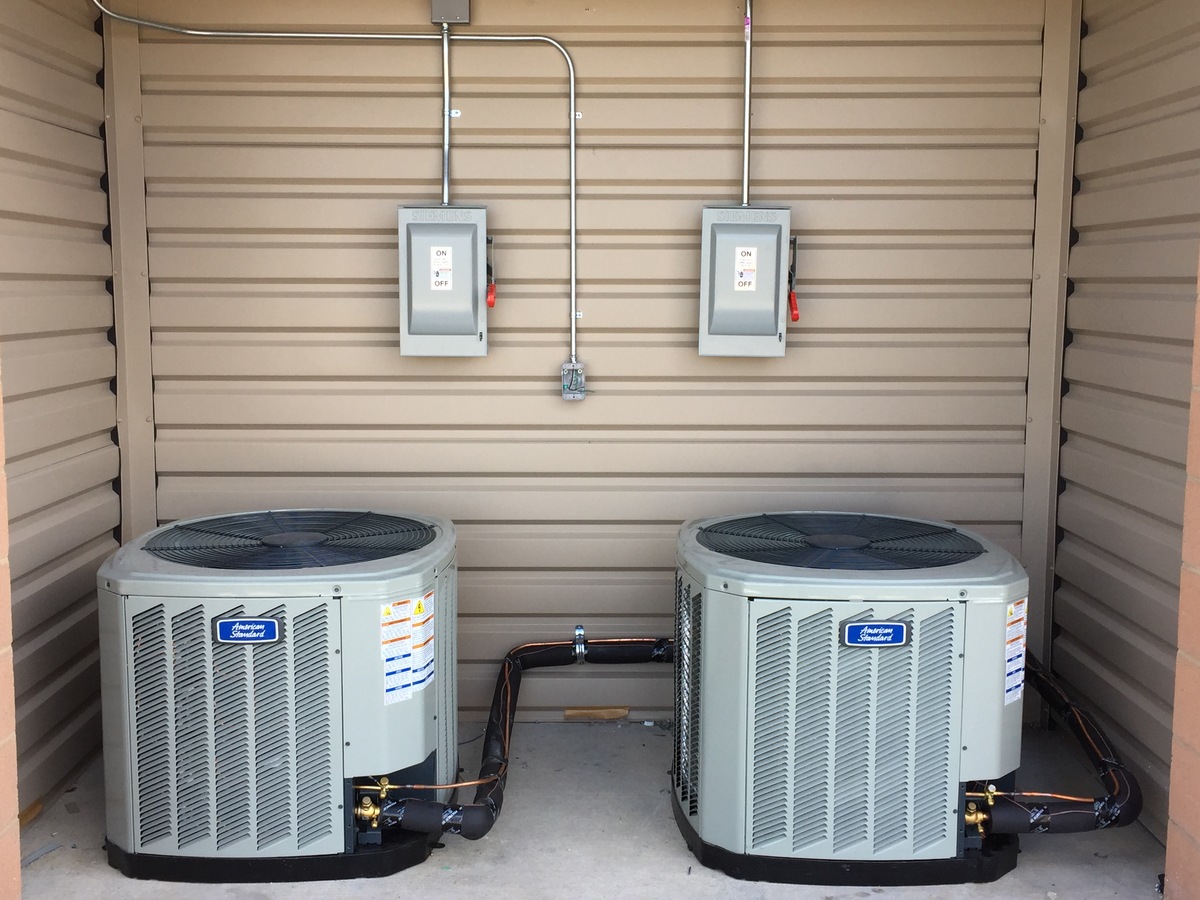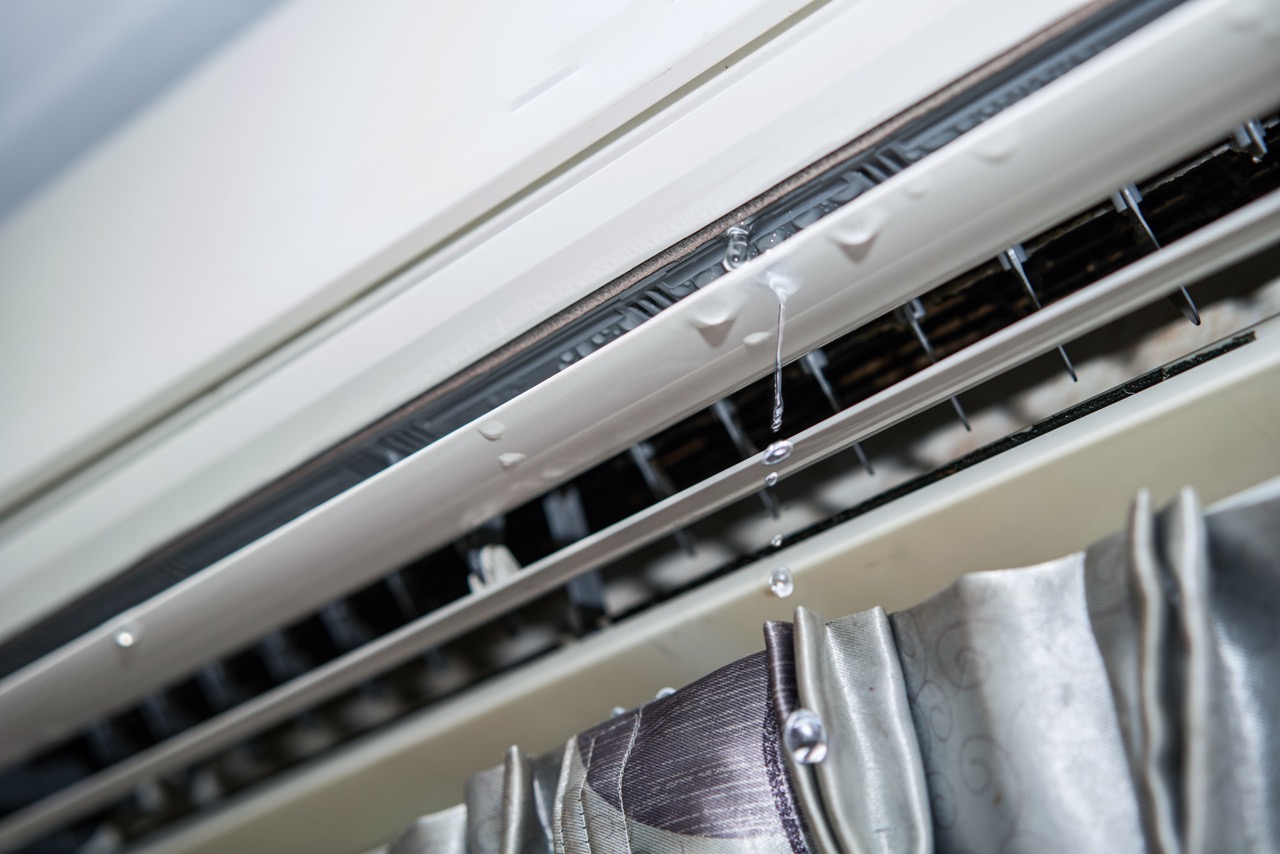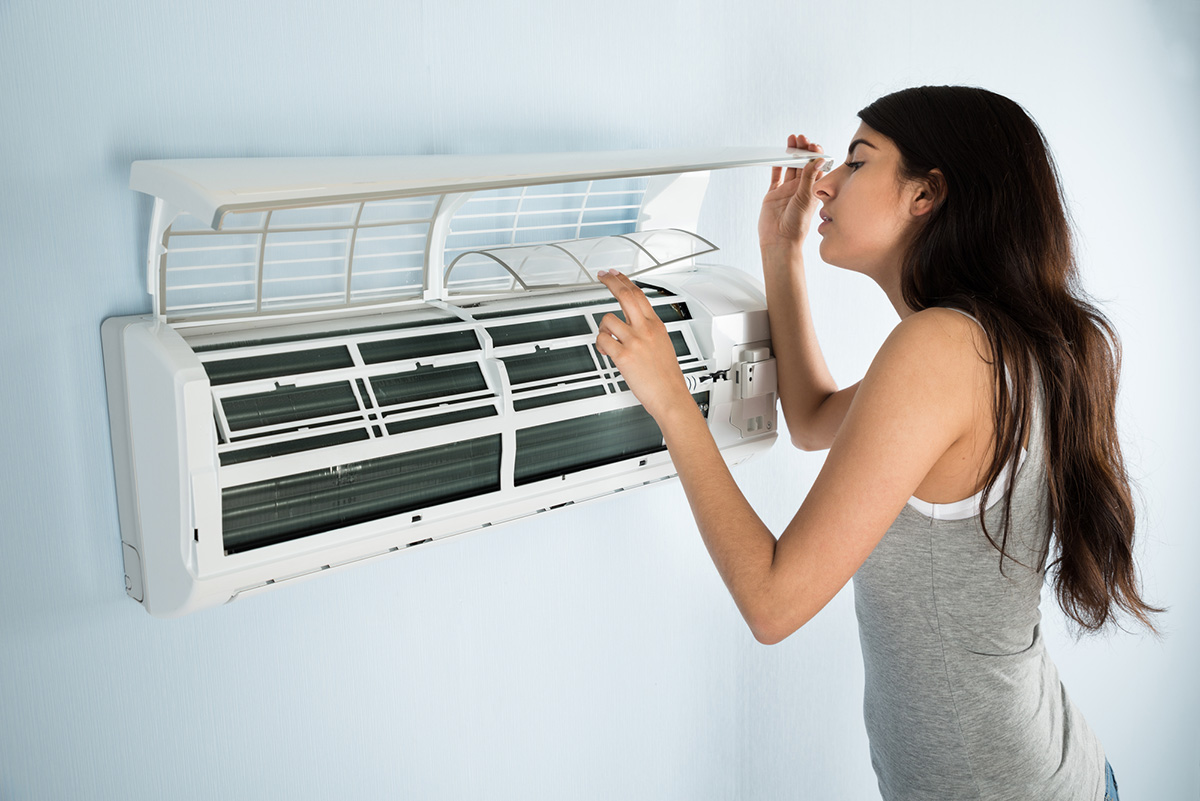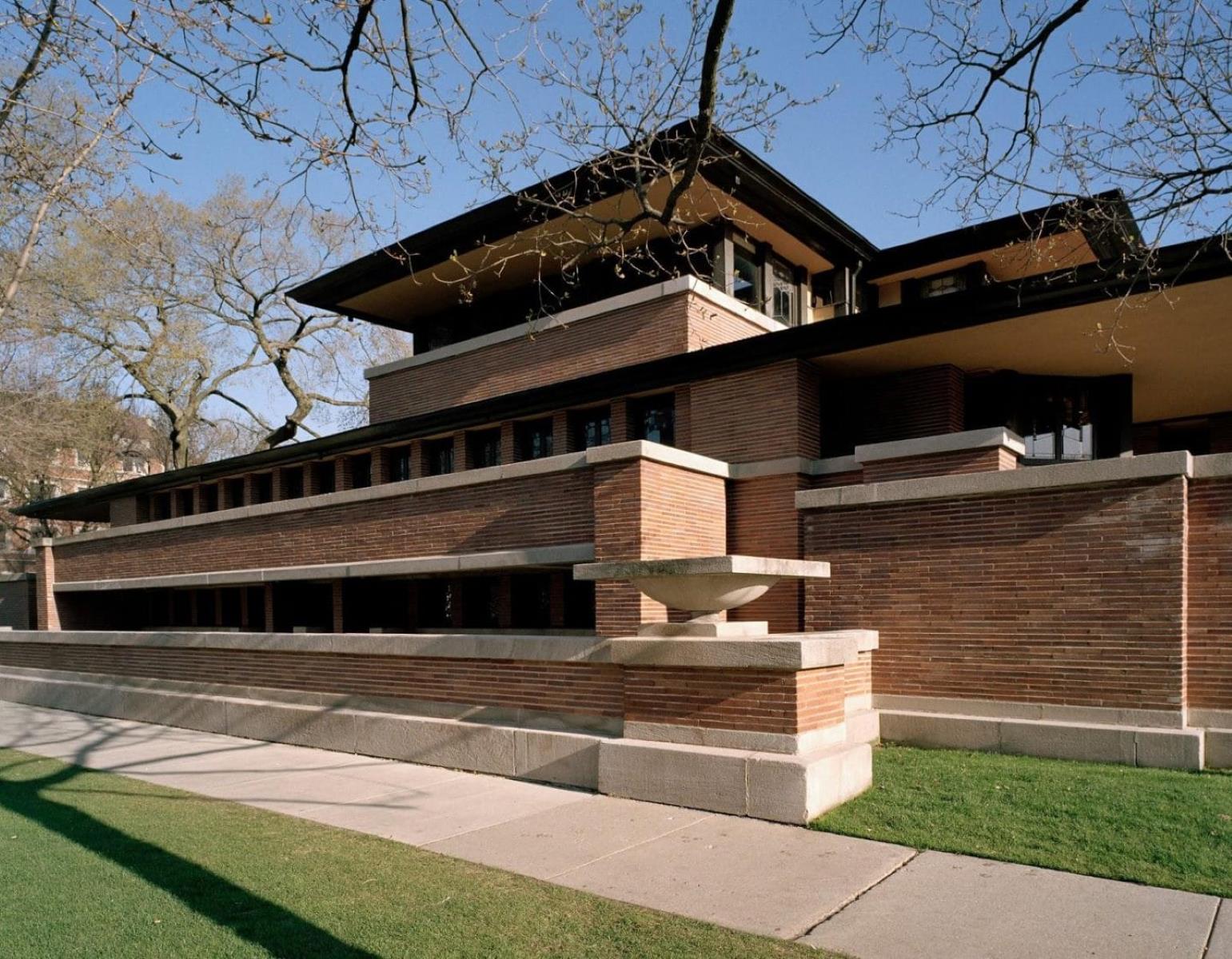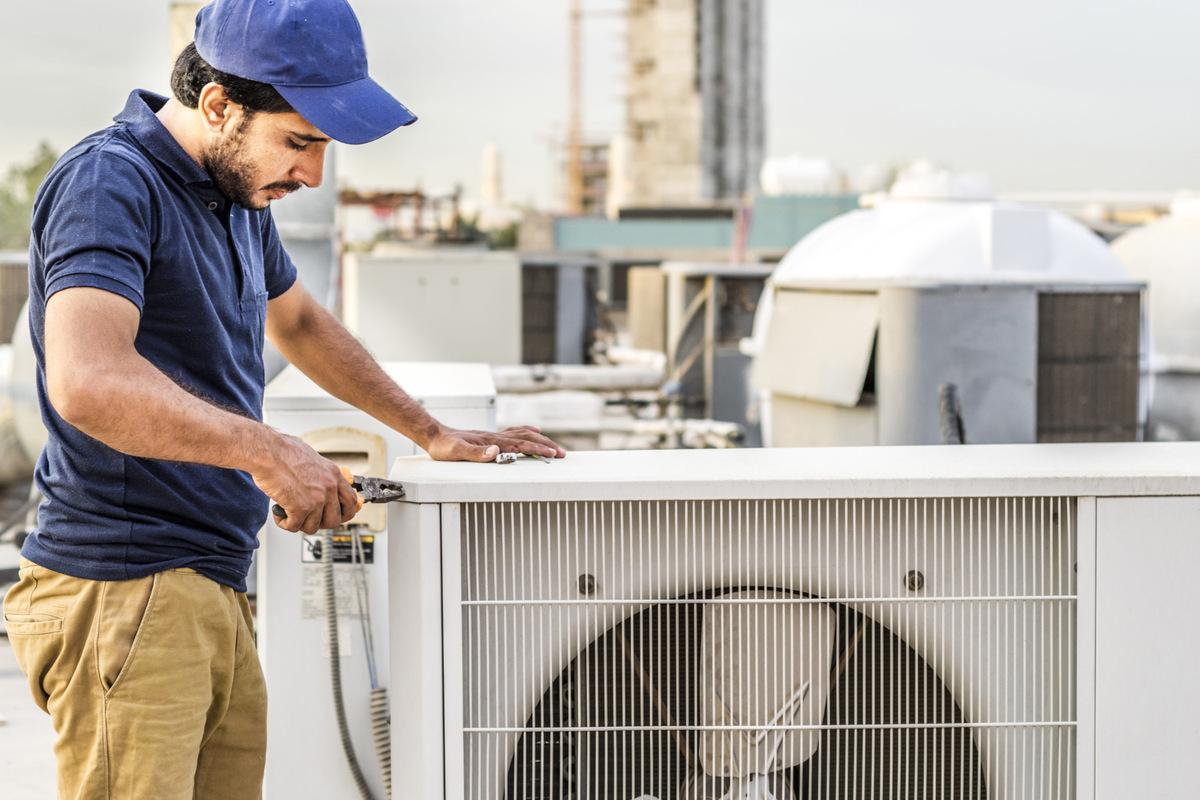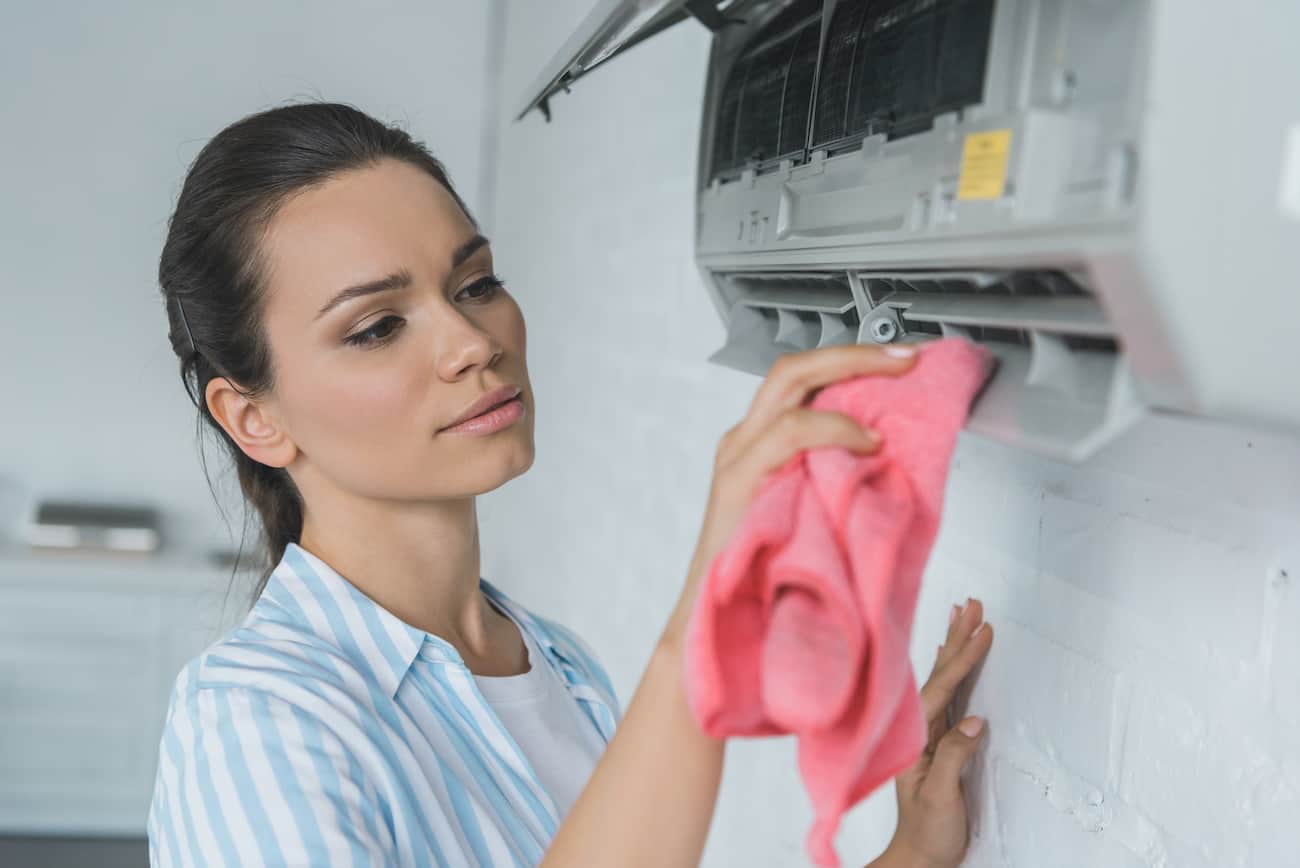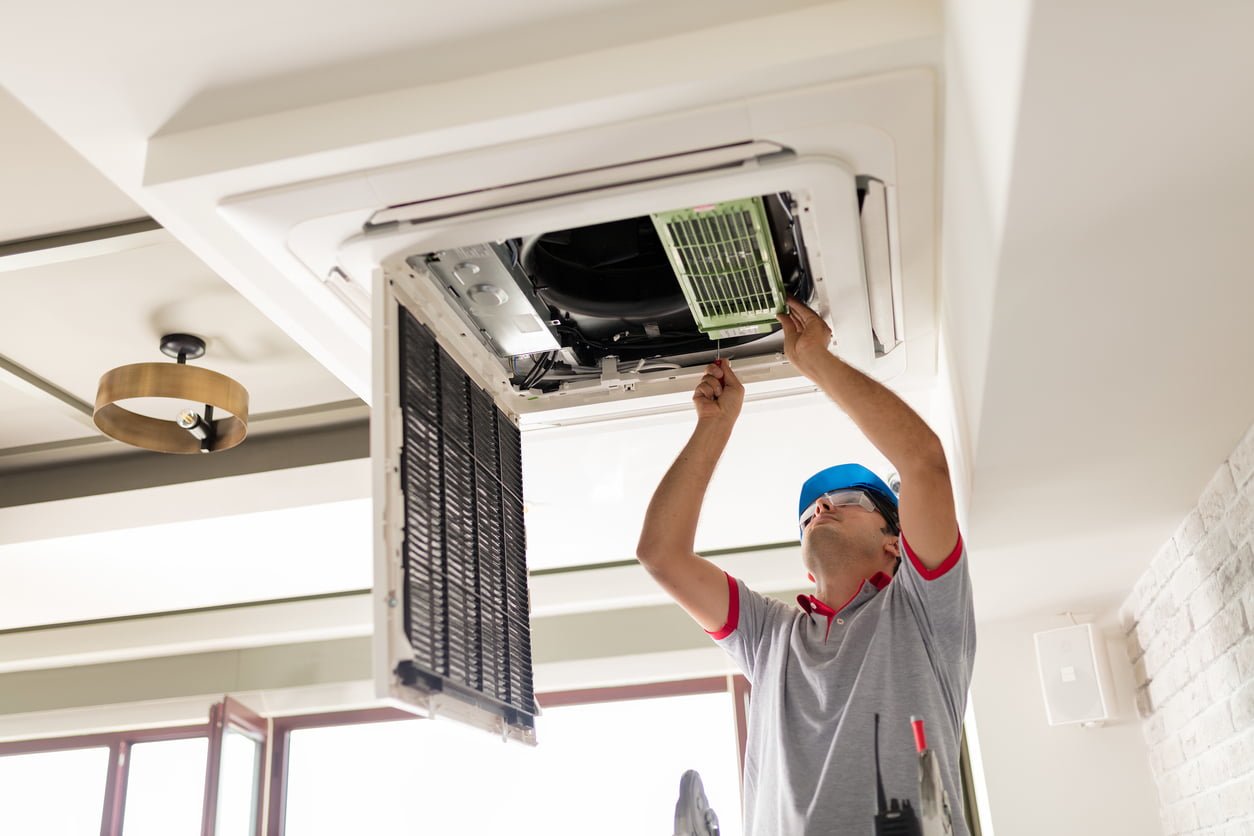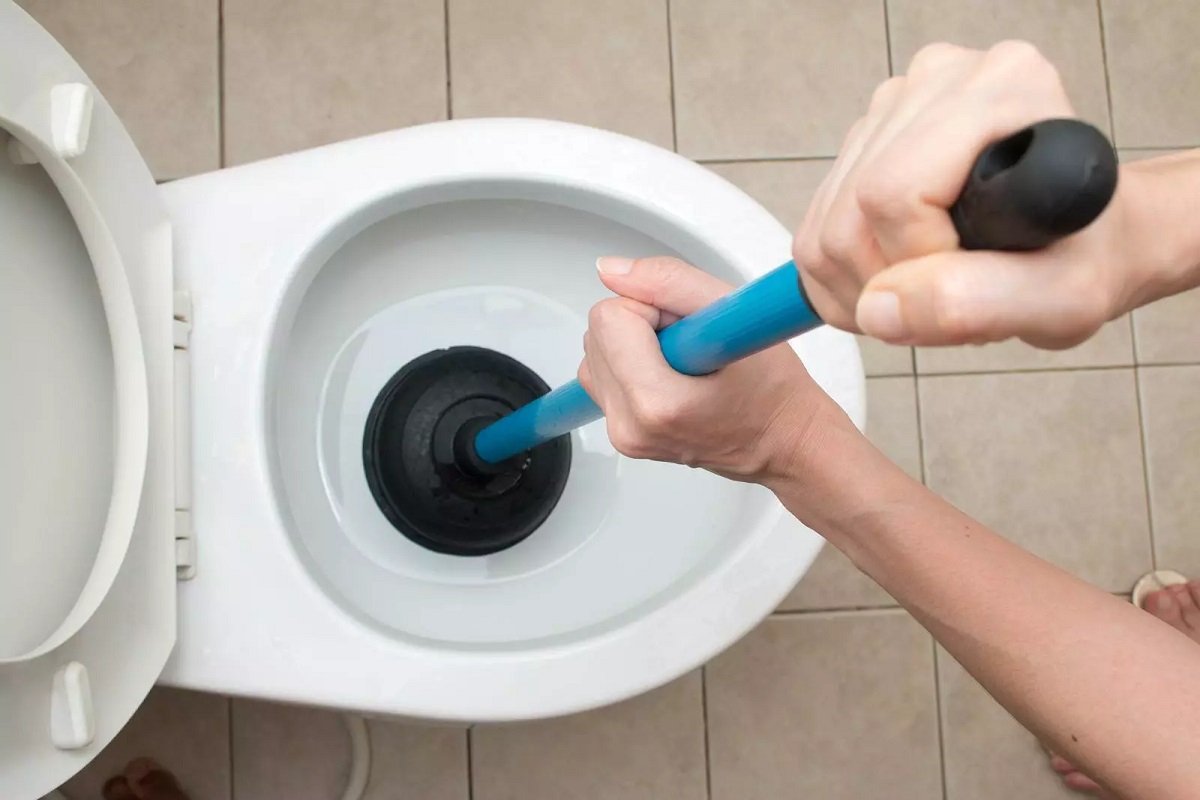Home>Home Maintenance>Why Is My House So Humid Even With Air Conditioning
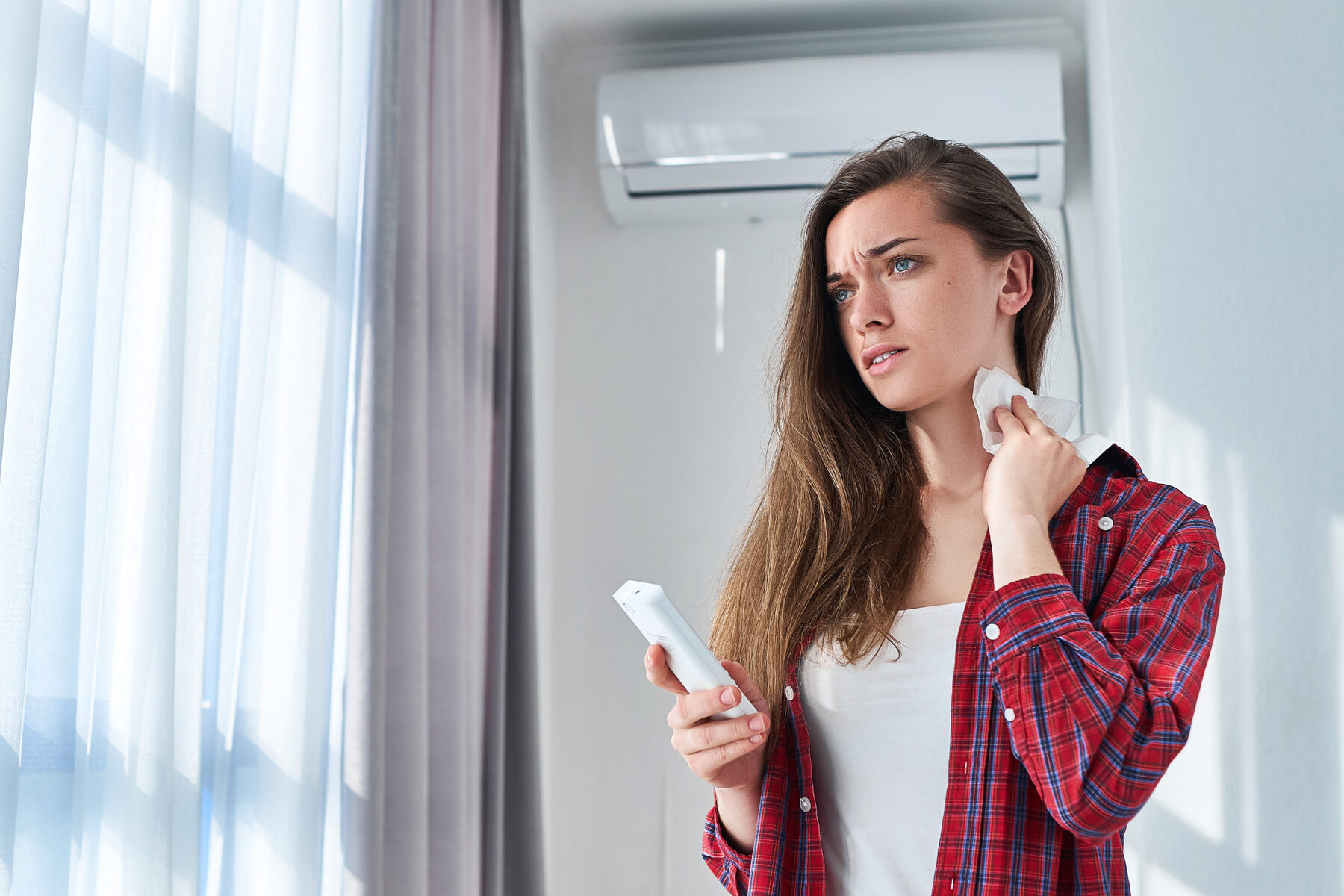

Home Maintenance
Why Is My House So Humid Even With Air Conditioning
Modified: March 6, 2024
Discover the reasons behind the excessive indoor humidity in your home. Learn how proper home maintenance can help control humidity levels and improve your comfort.
(Many of the links in this article redirect to a specific reviewed product. Your purchase of these products through affiliate links helps to generate commission for Storables.com, at no extra cost. Learn more)
Introduction
Have you ever wondered why your house feels so humid, even with the air conditioning running? Excess humidity can make your living space uncomfortable and even pose health risks. Understanding the factors that contribute to high humidity and how your air conditioning system plays a role can help you effectively control the moisture levels in your home.
Humidity refers to the amount of moisture present in the air. It is measured using a device called a hygrometer and is expressed as a percentage. Ideal indoor humidity levels typically range between 40% to 60%. When humidity levels exceed this range, problems can arise.
Several factors can contribute to high humidity levels in your house. One common cause is poor ventilation. When your house is not properly ventilated, moisture from activities such as cooking, bathing, and even breathing can accumulate, leading to high humidity levels. Additionally, if your house has leaky plumbing or a leaky roof, it can allow moisture to enter and contribute to high humidity.
Your air conditioning system plays a crucial role in controlling humidity levels. When functioning properly, an air conditioner not only cools the air but also removes moisture through a process called condensation. As warm air passes over the evaporator coils in your air conditioner, moisture in the air condenses into water droplets, which are then drained away. This helps to reduce the humidity in your home.
However, there can be issues with your air conditioning system that affect its ability to control humidity. If the unit is not properly sized for your home, it may not be able to adequately dehumidify. Additionally, if the evaporator coils are dirty or the refrigerant levels are low, the air conditioner may not extract moisture effectively. It is important to have regular maintenance and inspections to ensure your air conditioning system is performing optimally.
Fortunately, there are steps you can take to reduce humidity in your home apart from relying solely on your air conditioner. Simple measures like using exhaust fans in the kitchen and bathroom, opening windows to improve airflow, and installing dehumidifiers can help control moisture levels. Additionally, fixing any leaks or moisture issues in your home can significantly improve humidity control.
In this article, we will explore the causes of high humidity in the house, the role of air conditioning in controlling humidity, potential issues that can affect its effectiveness, and offer practical tips for reducing humidity in your home. Let’s dive in and learn how to create a more comfortable and healthier living environment by managing humidity levels.
Key Takeaways:
- Keep your home comfortable by using exhaust fans in the kitchen and bathroom, opening windows for airflow, and fixing leaks to reduce humidity levels.
- Regular maintenance of your air conditioning system is crucial for effective humidity control, ensuring a comfortable and healthy living environment.
Read more: Why Is My House So Humid With The AC On
Understanding Humidity
Before we delve into the causes of high humidity in your house, let’s take a moment to understand the concept of humidity. Humidity refers to the amount of moisture or water vapor present in the air. It plays a significant role in our daily lives, influencing our comfort levels, health, and even the condition of our homes.
Humidity is measured using a device called a hygrometer, and it is expressed as a percentage. The two commonly known types of humidity are relative humidity and absolute humidity. Relative humidity refers to the amount of moisture present in the air compared to the maximum amount it can hold at a specific temperature. Absolute humidity, on the other hand, measures the actual amount of moisture present in the air regardless of temperature.
Ideally, indoor humidity levels should range between 40% to 60% for optimal comfort and health. When humidity levels exceed this range, it can lead to various issues. High humidity levels can make your living space feel sticky, uncomfortable, and can also contribute to the growth of mold, mildew, and other allergens. It can also lead to condensation on surfaces like windows, walls, and ceilings, causing potential damage to your home.
Conversely, low humidity levels can also cause problems. When the air is too dry, it can lead to dry skin, irritated nasal passages, static electricity, and can even affect the structural integrity of wooden furniture and flooring.
Controlling humidity is crucial for maintaining a comfortable and healthy living environment. Fortunately, your air conditioning system can play a significant role in regulating humidity levels in your home.
As your air conditioner cools the air, it also removes moisture through a process called condensation. Warm air from your space passes over the evaporator coils in the air conditioner. As the warm air encounters the cold surfaces of the coils, moisture in the air condenses into water droplets. These droplets are then drained away from the system, effectively reducing the humidity indoors.
Now that we have a basic understanding of humidity and its impact on our daily lives, let’s explore the causes of high humidity in your house and how your air conditioning system can help combat it. Understanding these factors will enable you to take the necessary steps to create a more comfortable and healthier environment in your home.
Causes of High Humidity in the House
High humidity levels in your house can be attributed to various factors. Understanding these causes is essential in identifying the source of excess moisture and effectively managing humidity levels. Let’s explore some of the common culprits:
- Poor ventilation: Insufficient airflow and poor ventilation can allow moisture to accumulate indoors. Activities such as cooking, showering, and even breathing release moisture into the air. Without proper ventilation, this moisture becomes trapped, leading to high humidity levels. It is important to ensure adequate ventilation in your home, such as using exhaust fans in the kitchen and bathroom and opening windows to promote air circulation.
- Leaky plumbing: If your house has leaky pipes, faucets, or a faulty plumbing system, it can introduce excess moisture into your home. The constant presence of water can contribute to high humidity levels. Regularly check for any plumbing leaks and have them repaired promptly to prevent moisture buildup.
- Leaky roof: A leaky roof can allow water to enter your home, leading to dampness and increased humidity levels. Inspect your roof regularly for signs of damage or leaks, and repair them as soon as possible to prevent moisture infiltration.
- Inadequate insulation: Poor insulation in your home can lead to condensation on walls, windows, and other surfaces, especially during extreme temperature changes. This condensation can contribute to high humidity levels. Ensure that your home is properly insulated to prevent moisture-related issues.
- Drying wet clothes indoors: Hanging wet clothes indoors to dry can release a significant amount of moisture into the air. If you don’t have proper ventilation or a dedicated laundry room, this excess moisture can contribute to high humidity levels. Consider drying clothes outside or using a well-ventilated area to minimize the impact on indoor humidity.
- Basement or crawlspace moisture: Moisture from basements or crawlspaces can easily migrate to the rest of your house, leading to increased humidity levels. Factors such as groundwater seepage, poor drainage, or inadequate waterproofing can contribute to moisture accumulation. It is important to address any moisture issues in your basement or crawlspace to prevent high humidity throughout your home.
Identifying the specific causes of high humidity in your house will help you effectively manage and control moisture levels. By addressing these sources of excess humidity, you can create a more comfortable and healthier environment for both you and your home. In the next section, we will explore the role of your air conditioning system in controlling humidity.
Role of Air Conditioning in Controlling Humidity
Your air conditioning system plays a crucial role in maintaining comfortable indoor humidity levels. While its primary function is to cool the air, it also helps to dehumidify your home. Understanding how your air conditioner controls humidity can help you appreciate its importance in creating a more comfortable living environment.
When the air conditioning system is operating, it goes through a process that involves removing heat and moisture from the air. Here’s how it works:
- Absorbing heat: The air conditioner’s evaporator coil cools the warm air from your space as it passes over it. This cooling process absorbs heat from the air, reducing its overall temperature.
- Condensing moisture: As the warm air comes into contact with the cold evaporator coil, moisture in the air condenses into water droplets. This condensation occurs because the cold surface of the coil causes the air temperature to drop below its dew point, the temperature at which the air can no longer hold all of its moisture.
- Removing moisture: The condensed moisture, now in the form of water droplets, is collected in a drain pan and then drained away from the system. This process effectively removes excess moisture from the air, reducing the humidity in your home.
By decreasing the humidity levels, your air conditioner not only provides comfort but also helps prevent the growth of mold, mildew, and other allergens. High humidity can create an ideal environment for these allergens to thrive, potentially causing health issues and damage to your property.
However, it is important to note that the effectiveness of your air conditioning system in controlling humidity depends on several factors. These factors include:
- Proper sizing: The air conditioner should be correctly sized for your home. An undersized unit may struggle to dehumidify the space effectively, while an oversized unit may cool the air too quickly without sufficient time for moisture removal.
- Good insulation: Adequate insulation helps prevent heat and moisture transfer. Insulated walls, windows, and doors can help your air conditioner maintain desired humidity levels more efficiently.
- Regular maintenance: Keeping your air conditioning system well-maintained is essential. Dirty or clogged air filters, evaporator coils, and drains can hinder the dehumidification process. Regular cleaning and maintenance ensure optimal performance.
It is crucial to have your air conditioning system inspected and serviced by a professional technician regularly. They can identify any issues that may affect humidity control and ensure that your system is operating at peak efficiency.
In the next section, we will explore potential issues that can impact your air conditioner’s ability to effectively control humidity in your home.
Make sure your air conditioning system is properly sized for your home. An undersized unit may not be able to effectively remove humidity. Consider using a dehumidifier to help control indoor moisture levels.
Potential Issues with Air Conditioning and Humidity Control
While air conditioning systems are designed to regulate humidity levels, there are certain issues that can affect their ability to effectively control humidity in your home. It is essential to be aware of these potential issues to ensure that your air conditioner is functioning optimally and maintaining comfortable indoor humidity levels.
Here are some common issues that can impact air conditioning and humidity control:
- Improperly sized unit: If your air conditioner is too small for your home, it may struggle to dehumidify the space adequately. An undersized unit will not have the capacity to remove sufficient moisture from the air, resulting in high humidity levels. On the other hand, an oversized unit may cool the air quickly but not run long enough to remove moisture effectively.
- Dirty or clogged air filters: Air filters play a critical role in maintaining indoor air quality and airflow. When air filters become dirty or clogged, it can restrict the airflow, reducing the efficiency of your air conditioner’s dehumidification process. Regularly cleaning or replacing air filters is essential to ensure proper airflow and humidity control.
- Dirty evaporator coils: Evaporator coils are responsible for cooling the air and extracting moisture. Over time, these coils can accumulate dirt, dust, and other debris, hindering their ability to efficiently dehumidify the air. Regular maintenance, including cleaning the evaporator coils, is necessary to ensure optimal performance.
- Low refrigerant levels: The refrigerant in your air conditioning system is responsible for absorbing and dissolving heat from the air. If the refrigerant levels are low, it can cause the evaporator coils to become too cold, leading to inadequate moisture removal. This can result in high humidity levels. If you suspect a refrigerant leak, it is crucial to have it addressed by a professional technician.
- Inadequate airflow: Proper airflow is essential for effective humidity control. If your air conditioner’s airflow is restricted due to blocked vents or a malfunctioning blower, it can impact the dehumidification process. Regularly check and clean vents to ensure unrestricted airflow throughout your home.
- Inadequate maintenance: Regular maintenance is necessary to keep your air conditioning system operating efficiently. Neglecting routine maintenance tasks can lead to various issues that affect humidity control, such as dirty coils, clogged drains, or malfunctioning components. Schedule annual maintenance with a professional HVAC technician to keep your system in optimal condition.
Identifying and addressing these potential issues can help ensure that your air conditioner is effectively controlling humidity levels in your home. Regular maintenance and timely repairs are crucial in maintaining optimal performance and creating a comfortable and healthy indoor environment.
In the next section, we will discuss some practical tips for reducing humidity in your house, complementing the efforts of your air conditioning system.
Read more: Why Is My Basement So Humid
Tips for Reducing Humidity in the House
In addition to relying on your air conditioning system, there are several practical steps you can take to reduce humidity levels in your house. These tips will help create a more comfortable and healthier living environment. Let’s explore these strategies:
- Use exhaust fans: When cooking in the kitchen or taking a shower in the bathroom, be sure to use exhaust fans to remove excess moisture from the air. These fans help to expel humid air outdoors, preventing it from circulating and increasing humidity levels in your home.
- Open windows: Improve airflow in your home by opening windows, especially on days when the outside air is drier than indoors. Cross-ventilation can help remove stale, humid air and bring in fresh, dryer air, effectively reducing humidity levels.
- Install dehumidifiers: Consider using dehumidifiers in areas with persistent humidity issues, such as basements, crawlspaces, or rooms with poor ventilation. Dehumidifiers help to remove excess moisture from the air, reducing humidity levels and preventing mold and mildew growth.
- Fix leaks and moisture issues: Inspect your home for any leaks, whether from plumbing, roofs, or windows. Addressing these issues promptly can prevent moisture infiltration, which contributes to high humidity levels. Repair leaks, improve waterproofing, and ensure proper drainage to minimize moisture-related problems.
- Control indoor plants: While indoor plants can add beauty to your space, they can also release moisture into the air through a process called transpiration. If you have many indoor plants, consider reducing their numbers or placing them in well-ventilated areas to avoid excessive humidity buildup.
- Use moisture-absorbing materials: Using moisture-absorbing materials like silica gel packets or moisture-absorbing crystals can help reduce humidity levels in specific areas. These materials absorb excess moisture from the air, helping to maintain a drier environment.
- Avoid drying clothes indoors: If possible, avoid drying wet clothes indoors. Hanging wet clothes to dry indoors releases moisture into the air, contributing to high humidity levels. Opt for drying clothes outside or in a well-ventilated area to minimize the impact on indoor humidity.
- Maintain proper insulation: Ensure your home is properly insulated to prevent moisture intrusion from the outside. Good insulation helps to maintain stable indoor temperatures and reduces the potential for condensation, which can lead to increased humidity levels.
By implementing these tips and incorporating them into your daily routines, you can significantly reduce humidity levels in your home. Alongside your air conditioning system, these strategies will help create a more comfortable living environment and reduce the risks associated with high humidity.
Remember, maintaining a healthy humidity level is crucial not only for your comfort but also for the overall well-being of your home. If you continue to experience persistent humidity issues despite your best efforts, it is advisable to consult with a professional HVAC technician who can assess your specific situation and provide tailored solutions.
Now that you are equipped with practical tips and knowledge on humidity control, you can take proactive steps to maintain a comfortable and healthy living environment in your home.
Conclusion
Controlling humidity in your home is essential for creating a comfortable and healthy living environment. Excess humidity can cause discomfort, promote the growth of mold and allergens, and even damage your property. Understanding the factors that contribute to high humidity levels and the role of your air conditioning system in controlling humidity is key to effectively managing moisture levels in your home.
In this article, we explored the causes of high humidity in the house, including poor ventilation, leaky plumbing or roofs, and inadequate insulation. We also learned how your air conditioning system plays a crucial role in controlling humidity by removing moisture through condensation.
However, it’s important to be aware of potential issues that can hinder your air conditioner’s ability to effectively control humidity. Issues like improper sizing, dirty filters or coils, low refrigerant levels, inadequate airflow, and lack of maintenance can impact the dehumidification process.
To complement the efforts of your air conditioning system, we provided practical tips for reducing humidity in your home. Using exhaust fans, opening windows for airflow, installing dehumidifiers, fixing leaks, controlling indoor plants, and maintaining proper insulation are some of the strategies you can implement to lower humidity levels.
Remember, each home is unique, and the steps you take to control humidity may vary depending on your specific situation. Regular maintenance and inspections of your air conditioning system are crucial in ensuring optimal performance and humidity control.
By employing these strategies and understanding the factors that contribute to high humidity, you can create a more comfortable and healthier living space for you and your family. Maintaining proper humidity levels not only enhances your overall well-being and comfort but also protects your home from the damaging effects of excessive moisture.
So, take the necessary steps to manage humidity in your home, and enjoy a comfortable, dry, and healthy living environment all year round.
Frequently Asked Questions about Why Is My House So Humid Even With Air Conditioning
Was this page helpful?
At Storables.com, we guarantee accurate and reliable information. Our content, validated by Expert Board Contributors, is crafted following stringent Editorial Policies. We're committed to providing you with well-researched, expert-backed insights for all your informational needs.
